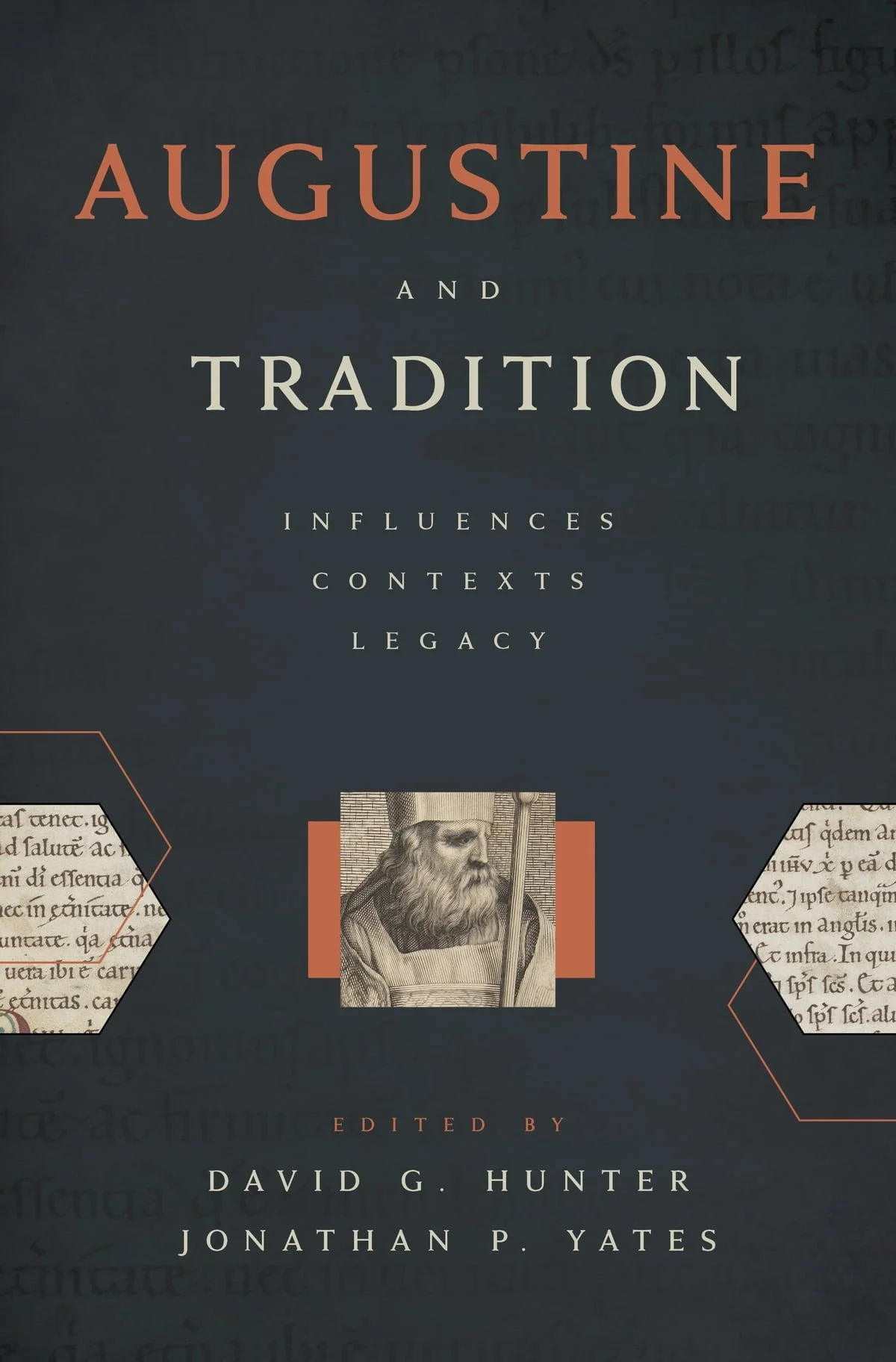Augustine and Tradition: Influences, Contexts, Legacy
Edited by David G. Hunter and Jonathan P. Yates
Eerdmans (2021). xix + 481 pp.
Book Review
Certain figures are so important in their age that they seem to come to us alone in history, a singular force in their time and milieu. Their influence, their legacy is so significant that it appears as if they almost singlehandedly redirected the course of civilization, theology, or the Church. Augustine is one such figure. The theological proverb that "All of Western theology is just a footnote to the theology of Augustine" testifies to the footprint he has left - upon both Roman Catholic and Protestant traditions.
This kind of hagiography is always - even as much as it may seem merited in the particular case of the North African bishop - a disservice both the theologian and the communion of saints. Even the most powerful and creative theological mind is the product of a complex web of relationships, inherited sources, and formative conflicts. Augustine and Tradition, a collection of essays from prominent Augustinian scholars, demonstrates this principle in a way that is helpful not only for understanding Augustine but also for understanding the vocation of the pastor-theologian.
The collection is divided into four parts, moving from Augustine's ecclesial and cultural context in North Africa to the philosophical and literary tradition he worked within to his dialogue with the Greek contemporaries and then finally to his contemporary figures and immediate successors. The editors have put together an impressive group of Augustine scholars, with John Cavadini, Michael Cameron, and James Wetzel among the contributors. The result of their combined effort is a nuanced portrait of the various ways that Augustine's genius was influenced and formed by a number of different factors and sources.
John Peter Kenny's essay, "Augustine and the Platonists" is an excellent example of what the volume accomplishes. The influence of Platonic philosophy upon Augustine is one of the more contended aspects of his thought, and Kenney's close reading of both Augustine's theology and also the complicated nuances of the Platonic tradition helps the reader to untangle how Augustine both appropriated and critiqued Platonism. Over and against readings of Augustine that claim Platonism compromised his fidelity to Scripture and thus corrupted his theology, Kenney demonstrates that the proper assessment of his relation to Platonism is one of "qualified rejection" (p. 150). Importantly for pastor-theologians, it was Augustine's vocation as a pastor and bishop that helped him to this conclusion. Kenney notes an "ecclesial turn" (p. 150) in his thought upon his assuming pastoral responsibilities, and this calling led him to prioritize Scriptural exegesis in his own theological reflection. "Scriptural dialectic became the center of his practice throughout his life as a bishop, preacher, and exegete" (p. 151). The social location of the pastorate was a primary formative influence upon Augustine.
Similarly, John Cavadini's essay on "Augustine and Ambrose" also complicates the "Great Man of History' reading of Augustine. Cavadini not only demonstrates that the Bishop of Milan had a lasting influence upon Augustine, but he also shows how that influence can be seen. One of the more interesting ways that this is seen is in the lasting importance of Ambrose's catechetical teaching upon Augustine the catechumen. "The most decisive impact Ambrose had on Augustine came from his catechetical and mystagogical instruction" (p. 332). Augustine took this foundational instruction that he received from Ambrose into his pastoral and theological career and continued to deploy it into the various contexts his calling presented him.
Hunter and Yates have produced a wonderful collection of diverse essays in this book. The volume will be of most interest to those who are already familiar with Augustine and who wish to take a more granular look at the various influences upon his thought; some previous knowledge of Augustine is assumed by the essayists. For those who are Augustine scholars, they will find this essay to be an important addition to their libraries because of the nuance and texture it provides for understanding his thought.
Whether or not this volume finds its way into the library of most pastor-theologians, in its scope and in its content Augustine and Tradition is a helpful portrait of the vocation that this journal and society works to further. The pastor-theologian is in many ways a generalist - a man or woman whose training leads not only to depth but also to breadth, to an ability to make use of a diverse set of influences, sources, and voices for the purpose of shepherding the local flock and presenting beautiful the Bride of Christ. Augustine, this volume demonstrates, is a model for all pastor-theologians in his own devotion to this task.
Joey Sherrard is Associate Pastor of Discipleship at Signal Mountain Presbyterian Church in Tennessee. He received his Ph.D. in Systematic Theology from the University of St. Andrews in Scotland, UK. Joey is a member of the St. John Fellowship of the Center For Pastor Theologians.




